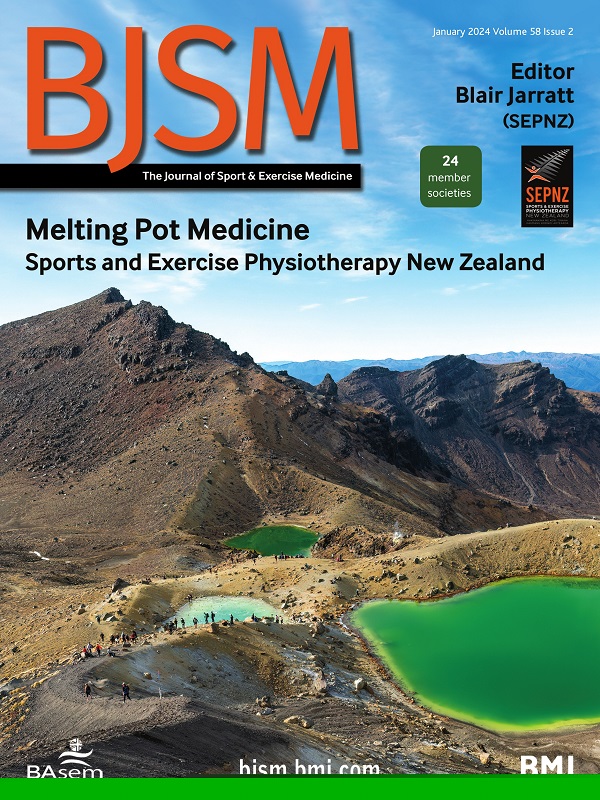The digital mirror: how generative artificial intelligence reflects and amplifies gender bias
IF 11.6
1区 医学
Q1 SPORT SCIENCES
引用次数: 0
Abstract
We live in unprecedented times for women in sport. In the USA, the 2024 collegiate basketball finals marked the first time in broadcast history that viewership of the women’s championship game was higher than the men’s.1 Internationally, the 2024 Paris Games were the most gender equal in Olympic history in terms of numerical parity on the playing field.2 Despite such progress, gender inequities in sport persist, which social scientists partially attribute to the harmful effects of stereotypical and often sexualised representations of women in sports media.3 As generative artificial intelligence (GAI) is increasingly leveraged for visual communication of sport, the risk of amplifying gender stereotypes is profound.4 Recently, authors of this editorial (J.M. and M.M.) created an image for social media use to promote findings from a study on inequities in training environments of elite women golfers.5 A GAI tool was prompted to ‘provide an image of women golfers.’ Dissatisfied with the initial stereotypical result, a second prompt was given: ‘show a more diverse representation of body types and ethnicity.’ There is much to deconstruct in the output (figure 1); at …数字镜子:生成式人工智能如何反映和放大性别偏见
我们生活在一个女性参与体育运动前所未有的时代。在美国,2024年的大学篮球决赛标志着广播历史上第一次女子冠军赛的收视率高于男子从国际上看,2024年巴黎奥运会是奥运会历史上在参赛人数上最平等的一届尽管取得了这样的进步,但体育运动中的性别不平等现象仍然存在,社会科学家将其部分归因于体育媒体中对女性的刻板印象和通常的性别化表现的有害影响随着生成式人工智能(GAI)越来越多地用于体育视觉传播,放大性别刻板印象的风险是深远的最近,这篇社论的作者(J.M.和M.M.)为社交媒体制作了一张图片,用来宣传一项关于精英女子高尔夫运动员训练环境不平等的研究结果一个GAI工具被提示“提供女性高尔夫球手的图像”。由于对最初的刻板印象不满意,他们又给出了第二个提示:“展示出更多样化的体型和种族。”输出中有很多需要解构的内容(图1);在…
本文章由计算机程序翻译,如有差异,请以英文原文为准。
求助全文
约1分钟内获得全文
求助全文
来源期刊
CiteScore
27.10
自引率
4.90%
发文量
217
审稿时长
3-8 weeks
期刊介绍:
The British Journal of Sports Medicine (BJSM) is a dynamic platform that presents groundbreaking research, thought-provoking reviews, and meaningful discussions on sport and exercise medicine. Our focus encompasses various clinically-relevant aspects such as physiotherapy, physical therapy, and rehabilitation. With an aim to foster innovation, education, and knowledge translation, we strive to bridge the gap between research and practical implementation in the field. Our multi-media approach, including web, print, video, and audio resources, along with our active presence on social media, connects a global community of healthcare professionals dedicated to treating active individuals.

 求助内容:
求助内容: 应助结果提醒方式:
应助结果提醒方式:


